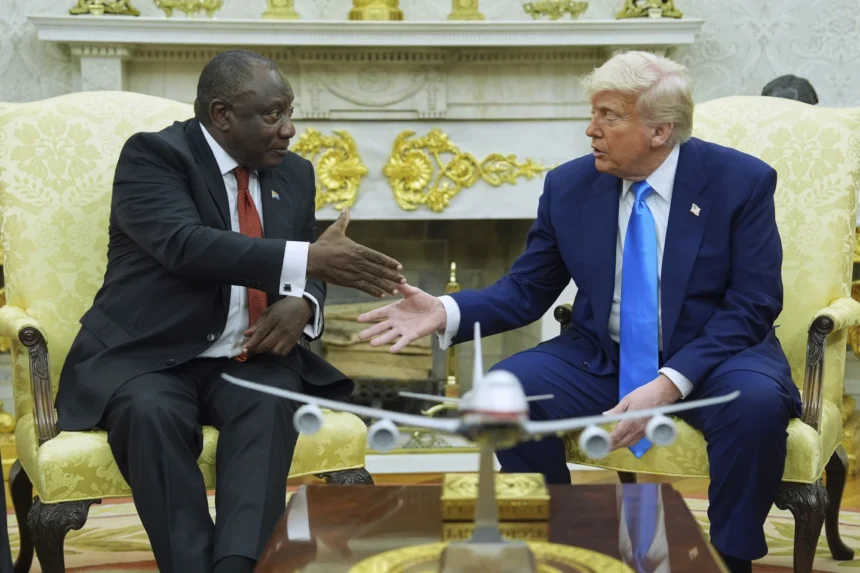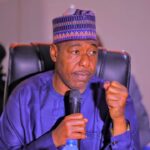U.S. President Donald Trump on Wednesday hosted his South African counterpart Cyril Ramaphosa in Washington in a high-stakes and tense meeting amid rising diplomatic tensions between the two countries, necessitating the Trump-Ramaphosa meeting.
The talks touched on sensitive issues including race, aid, foreign policy, and misinformation. Here are five major takeaways from the meeting:
1. Trump Repeats Claims of Attacks on White Farmers
During the Trump-Ramaphosa meeting, US President once again raised the controversial and unproven claim that white farmers in South Africa are being systematically targeted and killed. He reportedly presented videos and media clippings to support the allegations. President Ramaphosa rejected the claims outrightly, calling them inaccurate and harmful. He emphasized that farm-related crimes are part of broader security challenges affecting all South Africans, not a racially targeted campaign.
2. Ramaphosa Attempted to Repair Diplomatic Ties
Despite the friction, Ramaphosa approached the meeting with an effort to restore and stabilize U.S.-South Africa relations. In a strategic move, he included prominent Afrikaners and even Elon Musk—who was born in South Africa—in his delegation. The presence of Musk and other high-profile figures was intended to signal unity and dispel myths about racial hostility within South Africa.
3. U.S. Aid Cuts Threaten Health Programs
The U.S. had recently slashed over $430 million in aid to South Africa, primarily affecting HIV/AIDS programs and other health initiatives. This drastic cutback was based on alleged human rights concerns cited by the Trump administration. South Africa’s Finance Minister Enoch Godongwana stated that the government is unable to bridge the funding gap, putting critical health services for vulnerable populations at risk.
4. Foreign Policy Disputes Deepen the Divide
The rift between the two nations also extends to foreign policy. Washington has taken issue with South Africa’s stance on international matters such as its case against Israel at the International Court of Justice and previous dealings with Iran. These moves have fueled suspicions in Washington that South Africa is aligning with nations that the U.S. views as hostile.
5. Ramaphosa Stands Firm on Sovereignty
In response to the criticisms and political pressure, President Ramaphosa reaffirmed his country’s independence and commitment to democratic values. He declared, “We will not be bullied,” asserting that South Africa has the right to chart its own course while remaining a responsible global actor.
The Trump-Ramaphosa meeting ended without a clear resolution, underscoring the widening gap in U.S.–South Africa relations, but also the importance of continued dialogue in addressing global challenges.





